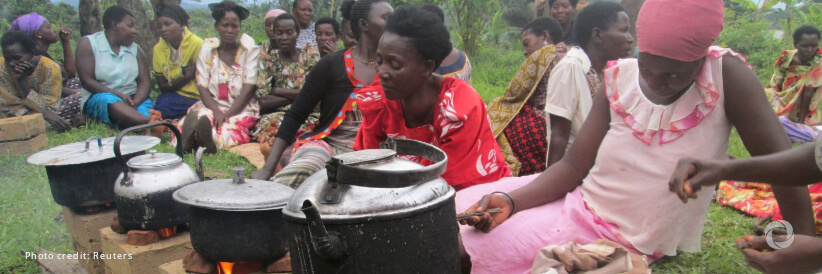The African Development Bank Group has recently approved $8.79 million in financing for the Uganda Biogas and Electric Cooking Project (UBEP), an ambitious initiative to expand clean cooking access across the country.
Currently, 89 percent of Ugandans rely on unsustainable biomass, such as fuelwood and charcoal, for cooking. This widespread dependence is accelerating deforestation and worsening indoor air pollution, contributing to a projected annual wood biomass deficit of over 100 million tons.
UBEP aims to address this challenge through a multi-pronged approach. The project will invest in biogas plants for public institutions and electric cooking appliances, primarily for urban households. Additionally, awareness campaigns seek to encourage behavioral changes, and technical training for SMEs and individual technicians will improve operational sustainability.
“The Uganda Biogas and Electric Cooking Project is a major milestone to help reduce the estimated half a million early deaths of women and children across Africa annually due to pollution from open fires,” said the Bank’s Uganda Country Manager, Josephine Ngure.
Comprising four components, UBEP is one of the Bank’s largest public-sector clean cooking initiatives to date. Key features include:
- Biogas for public institutions: Construction of 47 biogas plants for schools, markets, and farming communities, aiming to cut charcoal and fuelwood use in these facilities by up to 50 percent.
- Electric cooking adoption: Provision of approximately 77,000 affordable electric cooking (eCooking) devices in major urban centers to spur large-scale uptake.
- Support market development: Establishment of standards, repair and maintenance services, and distribution systems for eCooking appliances.
- Technical assistance and training: Capacity building to support implementation and scale-up.
“By promoting electric cooking methods, the Bank is supporting Uganda’s goal of achieving an 18 percent national eCooking adoption rate by 2030,” Ngure added.
The project also aligns with Uganda’s Vision 2040, Energy Transition Plan, the Bank’s Uganda Country Strategy Paper (2022–2026), and the country’s updated Nationally Determined Contribution under the Paris Agreement.
Funding comes primarily from the African Development Fund’s Climate Action Window, covering 64 percent of the project cost, with additional support from the UK Foreign, Commonwealth and Development Office and the Government of Uganda.
Across Africa, nearly one billion people lack access to clean cooking. In Uganda, UBEP is expected to reduce biomass dependence, improve indoor air quality, and curb tree harvesting. In the long term, it will also support forest conservation, restore ecosystems, enhance soil and water quality, and boost agricultural productivity through nutrient-rich biogas byproducts.
The project also promotes gender equity. By reducing the time women spend gathering firewood, it opens up opportunities for education and economic advancement.
With cleaner kitchens, healthier families, greener forests, and a stronger climate response, the Uganda Biogas and Electric Cooking Project marks a critical step toward a more sustainable and resilient future.

